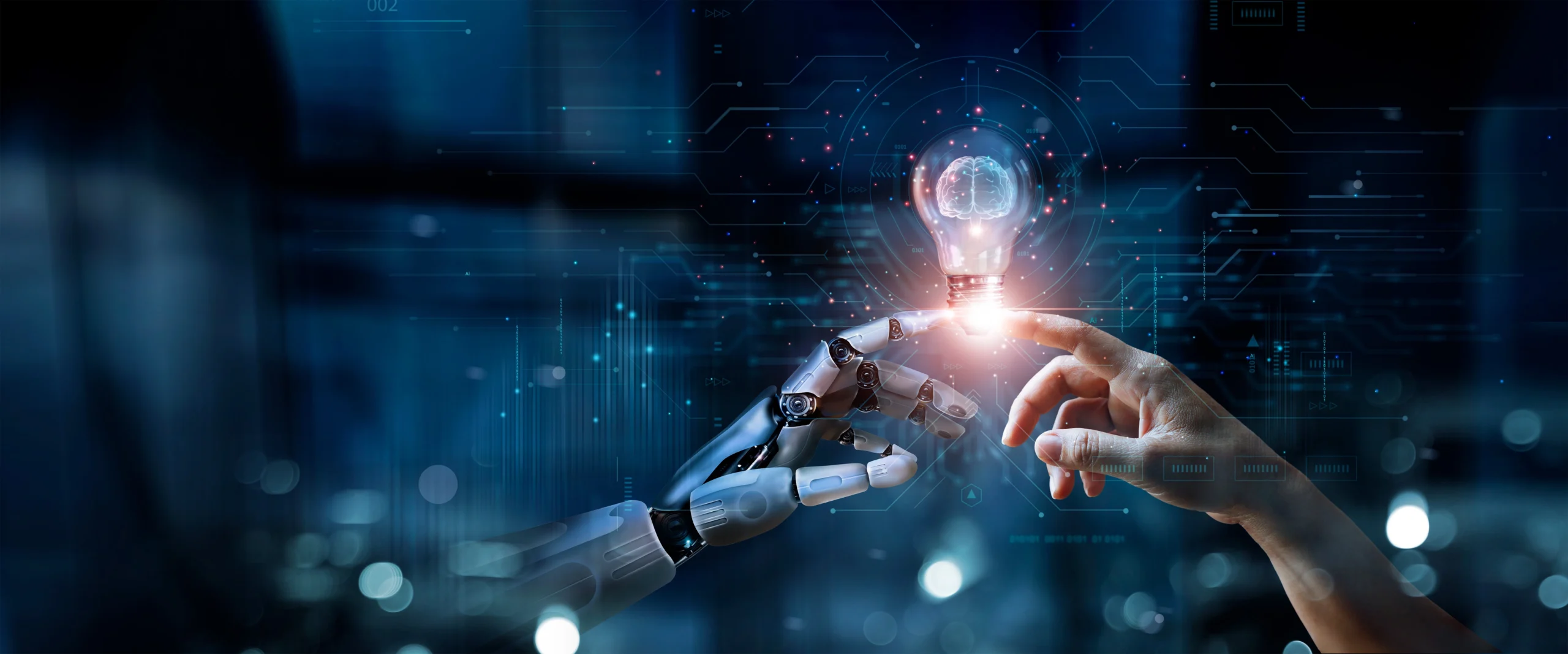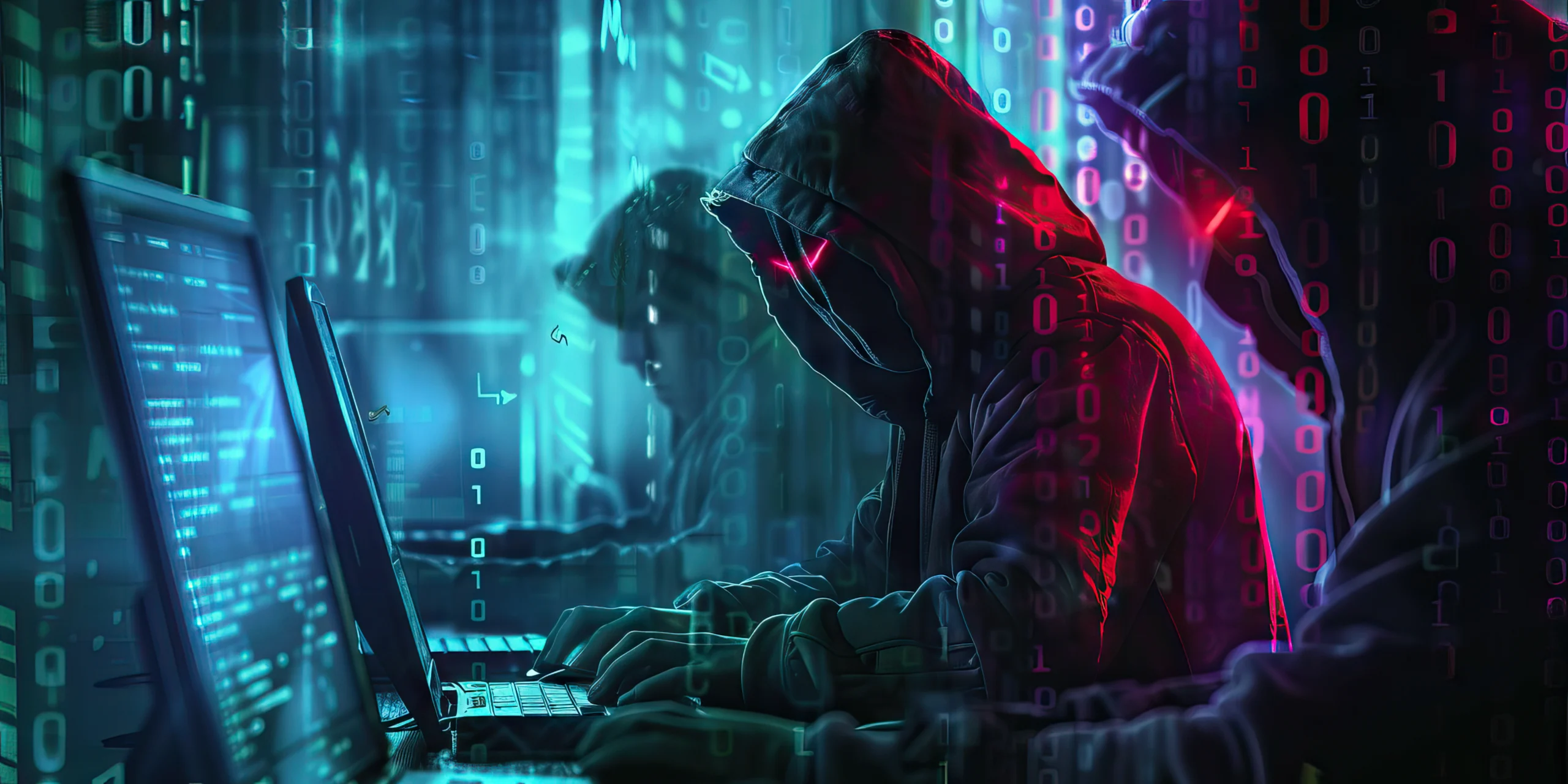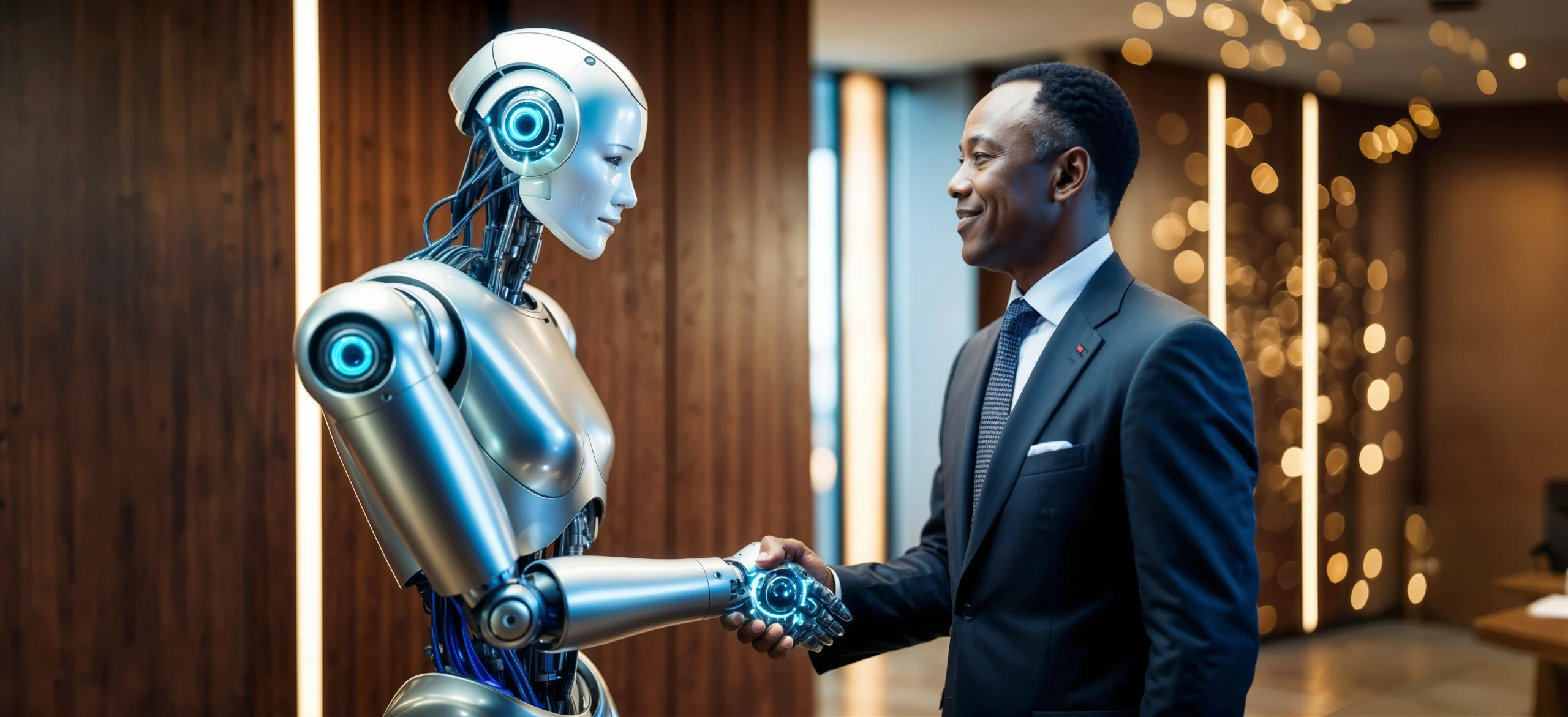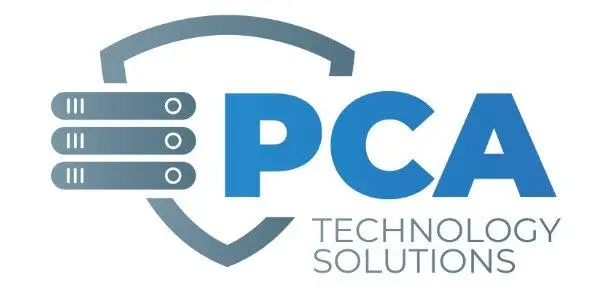Enhance Your Cybersecurity Strategy
AI in Cybersecurity: The Future is Now. Are We Ready?
Discover how AI is transforming cybersecurity, from enhanced threat detection to automated response. But are we ready for the challenges it brings?
Consider a scenario in which each click, and keystroke might serve as a possible port of entry for a cyberattack.
Although AI is your protector, it may also pose the biggest threat to you.
The cybersecurity environment of today is not for the timid. Malicious actors develop new strategies to get past even the most advanced defenses with every second that goes by. It is appropriate to think about AI as the cybersecurity superhero and, possibly, also as a supervillain.
Let’s examine whether AI is a friend or a foe and how your strategy might maximize its benefits and reduce its drawbacks. In this blog, we’ll dive into its benefits, the dangers it presents, and why the best strategies still blend human expertise with machine power.
Benefits vs. Dangers
Can AI Be Your Cybersecurity Ally?
When it comes to AI and cybersecurity, the first thing you need to understand is that AI is revolutionizing the field faster than any other technology. Its benefits are many and incredibly impactful.
1. AI's Rapid Fact-Finding Capabilities
The age-old saying “knowledge is power” has never been truer than in cybersecurity. When faced with potential breaches or anomalies, the ability to gather critical data swiftly can mean the difference in devastating losses. AI is built for this exact purpose.
AI is able to understand patterns, create solutions, and analyze huge amounts of data in real time, compared with more traditional methods, which can be tedious and prone to human error.
It is especially advantageous for businesses that employ Copilot, a Microsoft AI assistant. Copilot’s professional license can be a great tool to improve decision-making and secure the digital assets of an organization.
2. Speed and Reliability
In cybersecurity, every second counts. A delayed response can result in a costly breach, reputational damage, or the loss of valuable data. This is where AI can be of help; it excels in delivering faster and more reliable responses than humans alone. Its ability to process and react to data at lightning speed means that it can identify and mitigate potential threats before they escalate.
For instance, integrating Security Information and Event Management (SIEM) systems into your AI cybersecurity can be an advantage. These platforms collect, check, and analyze security data across an organization’s IT infrastructure.
AI’s integration with SIEM tools supercharges them by automating data analysis and alerting teams to any sudden, suspicious changes in real-time. AI-driven SIEM can review millions of log entries faster than a team of experts ever could and, more accurately, flag threats as soon as they occur.
3. Early Detection Through Anomaly Alerts
One of AI’s distinctive characteristics is its ability to monitor patterns and detect anomalies from what is usual.
AI algorithms are capable of constantly tracking an organization’s regular activities once it has set up a baseline. A sudden shift, such as a spike in data transfers or attempts to log in from odd places, can cause an alert to go off immediately. This AI capability is crucial in every cybersecurity system.
Detecting a threat earlier can help mitigate more damage. While human eyes might miss subtle signs, AI doesn’t tire or get distracted. It spots irregularities as soon as they arise, a significant leap in strengthening defensive measures.
AI-Powered Anomaly Detection
Real-Time Monitoring
Continuously track and analyze network activities to identify unusual patterns and potential threats instantly.
Proactive Threat Alerts
Receive immediate notifications of suspicious activities, allowing for swift action to mitigate risks.
Enhanced Security Measures
Leverage AI to strengthen your defenses, ensuring comprehensive protection against cyber attacks.
The Human-AI Collaboration

Despite the reliable assistance that an AI can provide, it still has flaws. AI does not have the contextual awareness or strategic thinking that human cybersecurity experts have. This is when the human touch becomes irreplaceable.
The best companies understand this and are moving towards a model that integrates AI with human oversight. It is the perfect combination: AI provides immediate, data-driven actions, and humans confirm these actions with educated decision-making. As I aptly put it, “The best companies are now combining AI with human touch.”
This balanced approach ensures that while AI handles the heavy lifting and flags potential threats, human experts step in to review, confirm, and manage the more technical aspects of incident response.
The Dark Side of AI: A Double-Edge Sword
While there’s no denying the power of AI in defending against cyber threats, we must also acknowledge its potential dangers.

Like any powerful tool, AI can be wielded with harmful intent. Hackers and cybercriminals have begun leveraging AI to launch more sophisticated attacks, making it clear that AI’s role in cybersecurity is not strictly as a protector.
1. The Limitations of Machine Logic
While AI can process data and identify threats, it needs to have the nuanced understanding that comes from years of human experience. An AI might flag an issue that, under closer inspection by a skilled professional, turns out to be a harmless anomaly. Conversely, there might be subtle, multi-faceted attack strategies that an AI could miss or interpret because it needs to have true human intuition or strategic foresight.
This underscores a key point: AI in cybersecurity is not a substitute for human judgment.
It’s a tool that enhances human capabilities, but it shouldn’t be mistaken for an all-knowing, foolproof system. The moment we begin to rely on AI only, we put our organizations at risk of missing those nuanced, complex scenarios that only a seasoned cybersecurity professional would catch.
Ironically, AI’s ability to collect, process, and analyze huge amounts of data is also a possible weakness. The sheer scale of data required for AI to function effectively can present privacy concerns. If mishandled or compromised, this data could become an asset for malicious actors.
Hackers can use AI to identify vulnerabilities within your system or even leak critical company information. Thus, it is vital to use AI solutions that focus on data protection.
A Force For Good Or Evil? Entrepreneurs Discuss The Pros And Cons Of AI For Business
Forbes
Human Expertise with AI: The Winning Strategy

Many leading organizations have recognized the limitations of AI and have opted for an integrated approach that pairs AI capabilities with human oversight.
This strategic blend allows for the following:
-
- Automated immediate actions, when necessary, followed by human review to ensure that responses are appropriate and effective.
-
- Collaboration between AI and SIEM systems, where AI handles data processing and humans make strategic decisions based on the insights provided.
-
- Continuous improvement, where AI systems learn from human corrections and decisions, makes them smarter and more reliable over time.
-
- The reality is that AI can do a lot, but it needs that human touch to avoid pitfalls and ensure the highest levels of cybersecurity.
Final Thoughts: AI-Friend or Foe?
AI in cybersecurity can be a powerful ally or a formidable foe. Used correctly, it is a tool that enhances speed, reliability, and early threat detection, keeping your business one step ahead of potential breaches. But it is not a silver bullet, nor should it be treated as such. The true power lies in understanding its capabilities and limitations, partnering AI with human expertise, and always maintaining an oversight that ensures every response is intelligent and informed.
Remember, the best strategy is one that leverages both strengths. Or, as I say, “The best companies are combining AI with Human touch.” Ensuring your teams strike this balance is paramount in today’s digital battlefield.
Want to strengthen your company’s cybersecurity strategy?
Consult PCA today to find the right tools and processes that will make AI your greatest ally, not your biggest vulnerability.
You Might Be Interested In:

Strengthen Your Cybersecurity Today
Partner with PCA Technology Solutions to fortify your business against cyber threats. Our expert team is ready to tailor solutions that meet your unique needs.

